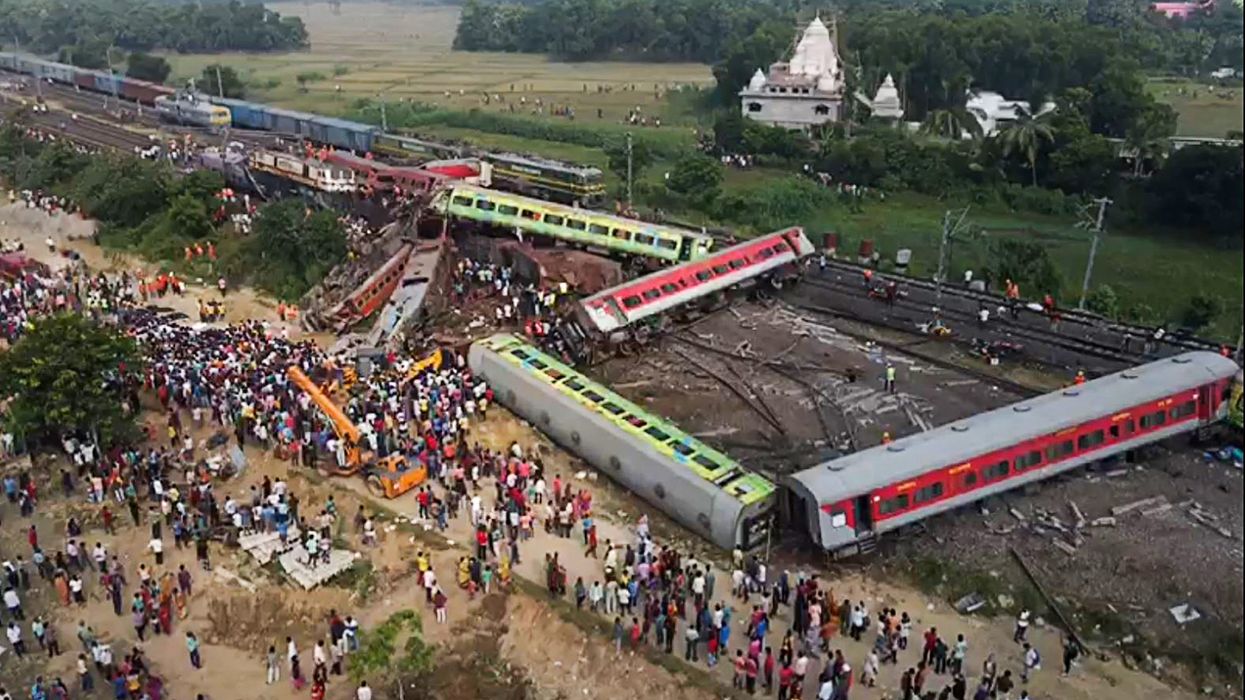In the aftermath of India's worst rail crash in over two decades, rescuers and families tirelessly combed through the wreckage of mangled train carriages on Sunday (03), in a desperate search for additional victims.
The incident, which occurred near the district of Balasore in the eastern state of Odisha, was likely caused by a signal failure.
At least 275 people lost their lives on Friday when a passenger train collided with a stationary freight train, derailing and subsequently crashing into another passenger train travelling in the opposite direction.
The initial death toll, initially estimated at 288, was revised downward on Sunday, as it was discovered that some bodies had been counted twice. Odisha Chief Secretary Pradeep Jena conveyed this information in a statement to the ANI news agency.
Adding to the toll, five more bodies were transferred to a local school, which had been repurposed as a makeshift mortuary near the accident site, in the early hours of Sunday.
The search and recovery efforts continued relentlessly as rescuers and families grappled with the devastating aftermath of the tragic incident.
The Indian Railways, a state-run transportation system which carries over 13 million passengers daily, has been actively implementing measures for improvement.
Prime Minister Narendra Modi personally visited the accident site on Saturday. During his visit, he engaged in discussions with rescue workers, surveyed the wreckage, and extended his support to some of the nearly 1,200 injured individuals.
Modi expressed his firm stance on accountability, stating, "Those found guilty will be punished stringently."
According to a railway official, a preliminary investigation into the train crash revealed that the Coromandel Express, en route from Kolkata to Chennai, veered off the main track and entered a loop track at a speed of less than 130 kph (81 mph).
Subsequently, it collided with a stationary freight train parked on the loop track. The impact caused the engine and the first four or five coaches of the Coromandel Express to derail, overturn, and collide with the last two or three coaches of the Yeshwantpur-Howrah train, which was travelling in the opposite direction at approximately 115 kph on the second main track.
The collision resulted in extensive wreckage as both trains derailed from their tracks, as shared by an anonymous source who is not authorized to speak to the media. Although the drivers of the two passenger trains sustained injuries, they managed to survive the crash.
As dozens of grieving and distraught relatives looked on, a team of workers equipped with heavy machinery took on the task of clearing the damaged track, wrecked trains, and tangled electric cables.
The magnitude of the rescue operation was emphasised by the Railway Ministry, which stated on Twitter that over 1,000 individuals were engaged in the ongoing efforts.
"The target is by Wednesday morning the entire restoration work is complete and tracks should be working," Railway Minister Ashwini said.
(Reuters)




